Amy Dirks on Making Smart Choices: Nutrition During the COVID-19 Pandemic
Nutrition information for soccer players from expert nutritionist Amy Dirks. Have a question about the best nutrition for soccer players? Just email Amy or visit Amy Dirks Sports Nutrition.
It’s safe to say that this is an odd time for all, but for athletes who are supposed to be “in-season” training hard, playing games, traveling, and sticking to the routine they know, this can be an even more confusing time.
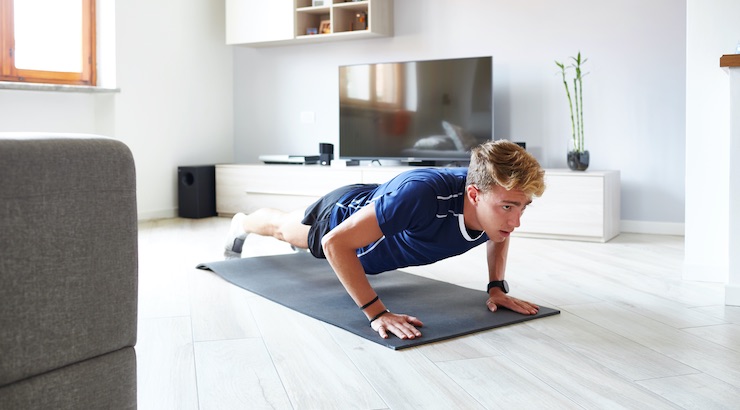
Social distancing means physically not working out with your team and trainers or coaches and it also brings up challenges with eating and nutrition.
It’s almost like you are eating in the “off-season” since you aren’t training at the level you would have been otherwise, yet you have to stay mindful and in shape for when practice resumes.
Read: SOCCER NUTRITION: BUILDING YOUR IMMUNITY IN THIS TIME OF COVID-19

Good Nutrition Can Make A Difference
So, what does that look like for an athlete and how should they be eating during this unknown era?
First and foremost, carbohydrates can take a back seat.
Most athletes use carbohydrates as their preferred energy source but without the increased energy demand, it makes sense to decrease the amount of carbs to maintain a healthy weight and body fat percentage. It’s ok to have the ½-⅔ cup serving size but no need for the extra rice, pasta, oatmeal, etc.
Healthy fats are important for brain and hormone health, so continue to eat a small amount of healthy fats with your meals, but maybe you could use a little less. For example, less salad dressing than usual, less coconut oil in smoothies, ½ of an avocado versus the whole, and only a handful of nuts.
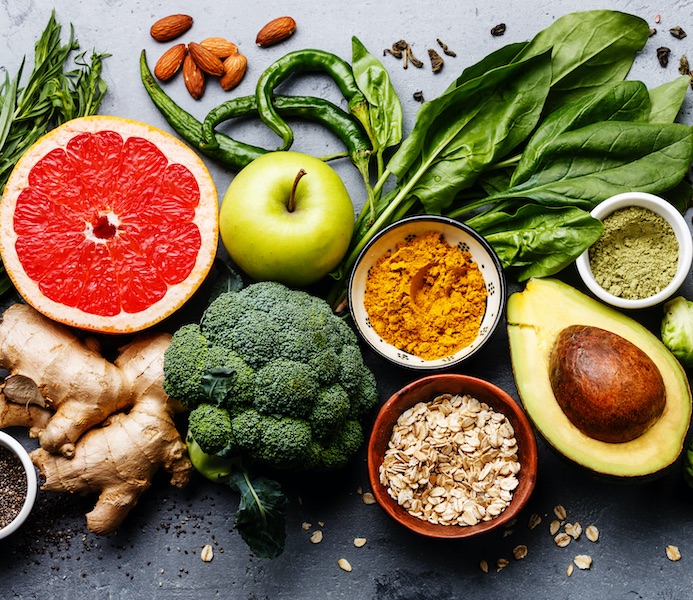
Increase the amount of nutrient-dense foods you consume, which will automatically increase your vitamin and mineral intake without the supplements.
Read: SOCCER NUTRITION: BONE BROTH IS THE ULTIMATE RECOVERY DRINK
Nutrient-dense foods are whole foods like fruits and vegetables, which is your natural “farmacy” and will help the body prepare for whatever the future holds.
Fruits and vegetables also help with immunity and everyone could use a strong immune system, especially now!
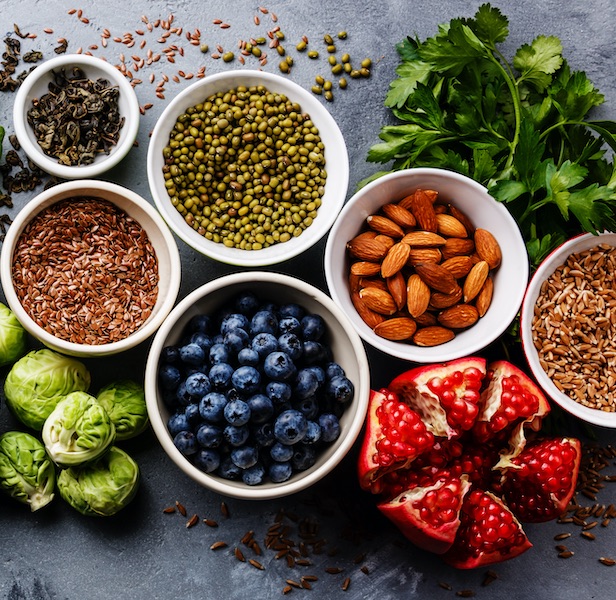
Speaking of immunity, if you haven’t started taking a probiotic, now would be a good time to start.
70% of your immune system is in your gut so if your gut is unbalanced with more bad bacteria than good, you may struggle with not only fighting off sickness but a compromised gut can lead to a host of other issues.
With so many brands available, I recommend “Just Thrive” spore-based probiotic, but if you’re looking for a different brand, look for 30-50 billion CFU’s from multiple strains of bacteria and from a trusted source.
Eating/drinking fermented foods such as kimchi, kefir, yogurt, kombucha, and sauerkraut is also beneficial for your gut health.
The one macronutrient that should stay consistent is protein.
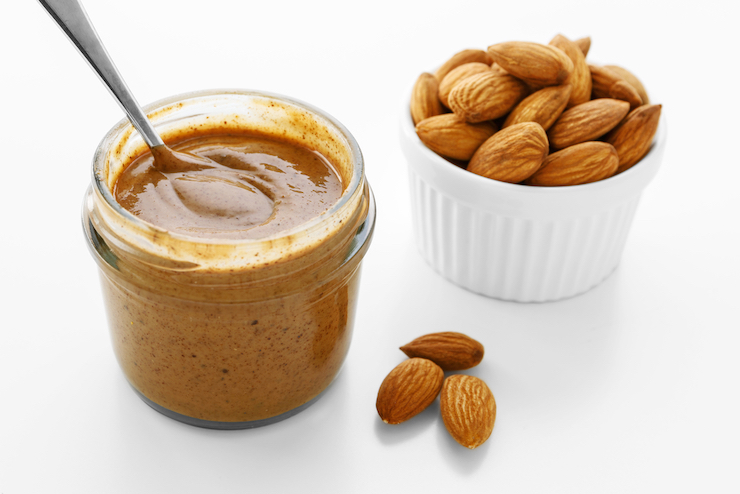
Lean proteins such as salmon, eggs, chicken, and turkey and plant-based proteins such as beans/lentils, nuts, and nut butters not only help to build and repair muscle tissue but also assist with satiety and blood sugar control.
This can help any athlete preserve lean muscle mass while maintaining a healthy body fat percentage.
This is certainly a time when you can say goodbye to many of the “sports products” and convenience foods you may use, such as protein bars and protein powders.
Focus your time on real foods, not foods made in a lab.
If you find yourself with more time for cooking and meal prep, try making your own granola bars, energy balls, protein pancakes, and trail mix. There’s an unlimited amount of information on meal prep and recipes available online so start by doing a little research and choose one or two new recipes you can try.

You may find some things you love and want to add to your “in-season” regimen. Also, when trying new foods/recipes (or supplements), you want to make sure you try them when you aren’t in peak season so now is an ideal time.
Read: HYDRATION FOR SOCCER PLAYERS: WHAT TO DRINK WHEN and SOCCER NUTRITION: THE SCOOP ON OREOS FOR SOCCER PLAYERS
Pay attention to how your body responds, such as any stomach/GI distress and energy levels.
Salt intake is another item you can potentially decrease as you will not need the sodium/potassium and other electrolytes as you would during increased training sessions, travel, and games. I
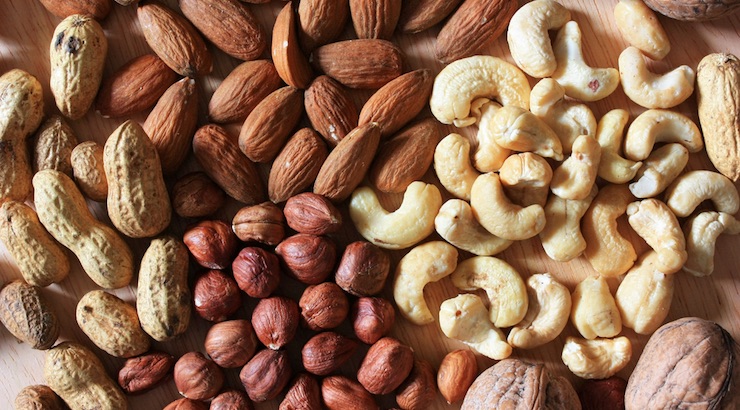
f you are decreasing the convenience foods and sports products (drinks, gels, bars), this will automatically lessen sodium in your diet as well as other processed ingredients. Salted nuts, beef jerky, soups (especially store-bought), canned goods, fast food, and processed foods all contain extra salt. Given the current times, canned goods may be necessary so try to rinse your foods before cooking and eating to decrease the amount of sodium.
Don’t fill yourself with empty calories from sodas and sweetened drinks.
Continue to make WATER your drink of choice.
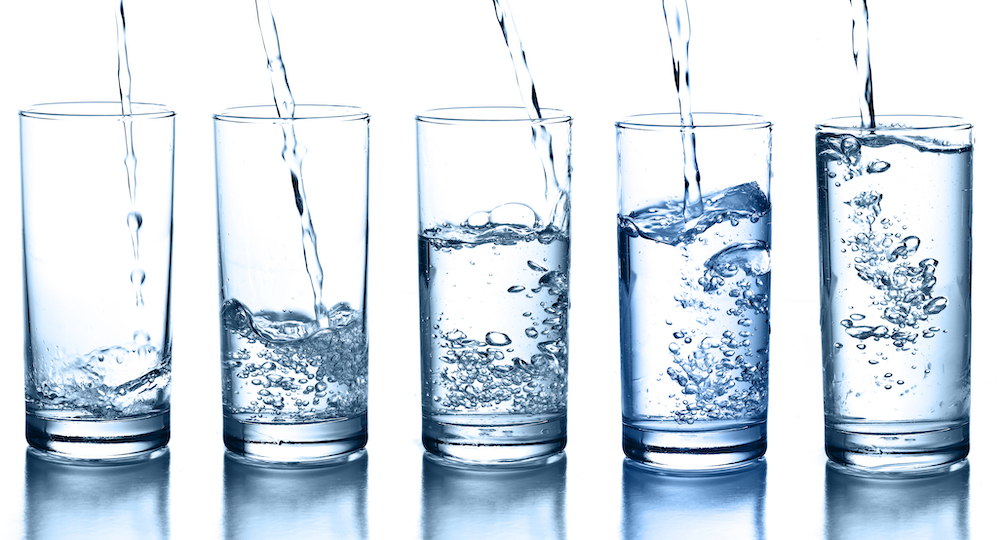
Get creative with your water by adding lemon slices (which gently detoxes the liver), or try fresh strawberries and cucumber with mint. Oranges, limes, and grapefruits also work and add a burst of flavor and Vitamin C. Green teas, chamomile, and dandelion teas are also nice alternatives to plain water.
A wise man once said “This too shall pass”.
While normal life as we knew it has shifted, choose to focus this time on your physical and mental wellbeing, however that looks. Maybe you concentrate on getting in your daily water, perhaps making a smoothie every day is your goal, or finally learning to cook is your mission.
Create a new schedule for yourself and nourish your body how you see fit.
Set a small goal for yourself each day or each week that will help keep you motivated and in your optimal athletic shape.
A good visual for what your meals should look like is the Precision Nutrition plate below for an “Anytime Meal”.
Read: AFTER BEING BANNED BY PRO CLUBS, SHOULD ELITE YOUTH PLAYERS EAT PIZZA? and NUTRITION FOR SOCCER PLAYERS: IS SODA REALLY BAD FOR ATHLETES?





